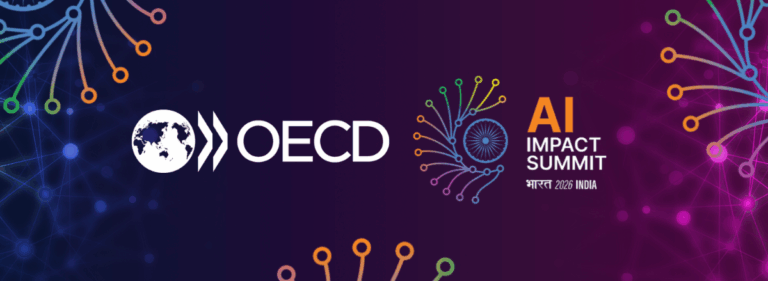A dynamic dialogue with Southeast Asia to put the OECD AI Principles into action

A policy roundtable in Tokyo and a workshop in Bangkok deepened the dialogue between Southeast Asia and the OECD, fostering collaboration on AI governance across countries, sectors, and policy communities.
A dialogue strengthened by two dynamics
Southeast Asia is rapidly emerging as a vibrant hub for Artificial Intelligence. From Indonesia and Thailand to Singapore, and Viet Nam, governments have launched national AI strategies, and ASEAN published a Guide on AI Governance and Ethics to promote consistency of AI frameworks across jurisdictions.
At the same time, OECD’s engagement with Southeast Asia is strengthening. The 2024 Ministerial Council Meeting highlighted the region as a priority for OECD global relations, coinciding with the tenth anniversary of the Southeast Asia Regional Programme (SEARP) and the initiation of the accession processes for Indonesia and Thailand.
Together, these dynamics open new avenues for practical cooperation on trustworthy, safe and secure AI.
In 2025, this momentum translated into two concrete engagement initiatives: a policy roundtable in Tokyo in May and a co-creation workshop for the OECD AI Policy Toolkit in Bangkok in August. Both events shaped regional dialogues on AI governance and helped to bridge the gap between technical expertise and policy design.
Japan actively supported both initiatives, demonstrating a strong commitment to regional AI governance. At the OECD SEARP Regional Forum in Bangkok, Japan expressed hope that AI would become a new pillar of OECD–Southeast Asia cooperation, highlighting the Tokyo Policy Roundtable on AI as the first of many such initiatives. Subsequently, Japan supported the co-creation workshop in Bangkok in August, helping to ensure a regional focus and high-level engagement across Southeast Asia.
The Tokyo roundtable enabled discussions on AI in agriculture, natural disaster management, national strategies and more
On 26 May 2025, the OECD and its Tokyo Office held a regional policy roundtable, bringing together over 80 experts and policymakers from Japan, Korea, Southeast Asia, and the ASEAN Secretariat, with many more joining online. The event highlighted the importance of linking technical expertise with policy to ensure AI delivers benefits responsibly, drawing on the OECD AI Principles and Policy Observatory. Speakers from ASEAN, Thailand, and Singapore shared progress on implementing their national AI strategies,
Research insights shed light on how AI is being utilised in two of the region’s priority areas, agriculture and disaster prevention and management.
- Agriculture – AI can support scalable responses to global challenges such as climate change, biodiversity loss, and food insecurity. One example is the application of AI-driven predictive models in crop breeding. When trained on data from past hybrid combinations, a process that requires lengthy manual trial processes, these models can accelerate the identification of optimal hybrid combinations to maximise yields and nutritional quality under varying climatic and soil conditions.
Beyond breeding, AI can also ease farmers’ daily work through applications ranging from automated crop variety recognition to tailored cultivation advice. To unlock these opportunities, governments and other actors will require sustained investment in digital infrastructure, high-quality datasets, and human capital.
- Disaster prevention and management – In a region naturally prone to natural hazards, AI tools can strengthen prevention, preparedness, and response. AI can enhance risk models by incorporating diverse sources of historical and real-time data, including ground sensors, satellite imagery, and aggregated telecommunications data. With sufficiently large and reliable datasets, AI-enabled forecasting can provide more timely and accurate disaster predictions. A notable example is the integration of AI in Digital Twin technology, which combines real-time data streams with AI models to simulate disaster scenarios such as tsunamis and typhoons. This can deliver more accurate risk assessments, such as population impact and damage estimation, and more efficient scenario analyses, leading to more effective emergency resources allocation.
As climate change intensifies agricultural stress and increases the frequency and severity of some natural hazards, these cases show how AI can deliver real societal benefits. They also highlight the need for strong governance and regional cooperation, supported by OECD initiatives like the upcoming AI Policy Toolkit.
The OECD presented activities in international AI governance, including the AI Policy Observatory, the AI Incidents and Hazards Monitor and the Reporting Framework for the G7 Hiroshima Code of Conduct for Developers of Advanced AI systems.
Bangkok co-creation workshop: testing the OECD AI Policy Toolkit
Following the Tokyo roundtable, the OECD, supported by the Foreign Ministries of Japan and Thailand, hosted the first co-creation workshop for the OECD AI Policy Toolkit on 6 August 2025 in Bangkok. Twenty senior policymakers and AI experts from across the region contributed regional perspectives to shape the tool, which will feature a self-assessment module to identify priorities and gaps, alongside a repository of proven policies and practices. The initiative, led by Costa Rica as Chair of the 2025 OECD Ministerial Council Meeting, has already gained strong backing from governments and organisations, including Japan’s Ministry of Internal Affairs and Communications.
Hands-on discussion on key challenges and practical solutions
The co-creation workshop provided a space for participants to work in breakout groups and discuss concrete challenges, explore practical solutions and design effective AI policies in key domains.
Participants identified several pressing challenges for AI governance in Southeast Asia. Designing public funding programmes for AI research and development remains difficult in an environment where technology evolves faster than policy cycles, while the need for large-scale investment continues to grow.
The scarcity of high-quality, local-language data, weak governance frameworks, limited data-sharing mechanisms, and reliance on foreign compute providers further constrain progress, alongside the shortage of locally developed AI models tailored to sectoral needs.
Participants also focused on labour market transformation, digital divides, and the need to advance AI literacy across all levels of society – from citizens to policymakers – to foster awareness of both opportunities and risks.
Participants showcased promising national initiatives, from responsible data-sharing frameworks and investment incentives for data centres and venture capital, to sectoral data platforms and local-language large language models. Countries are also rolling out capacity-building programmes to strengthen AI adoption and oversight, while seeking the right balance between regulation and innovation to foster trustworthy AI.
Across groups, participants agreed on the need to strengthen engagement, foster collaboration, and create enabling conditions for the practical deployment of AI, capacity building, and knowledge sharing.
The instruments discussed during the workshop will feed into the Toolkit’s policy repository, enabling other countries to draw on these experiences and adapt them to their national contexts.
Taking AI governance from global guidance to local practice
The Tokyo roundtable and Bangkok workshop were key milestones in building a regional dialogue on AI governance with Southeast Asian countries. By combining policy frameworks with technical demonstrations, the discussions focused on turning international guidance into practical, locally tailored measures. Southeast Asia is already shaping how global principles translate into action, and with continued collaboration, the OECD AI Policy Toolkit will provide governments in the region—and beyond—with concrete tools to design and implement trustworthy AI.
The authors would like to thank the team members who contributed to the success of these projects: Hugo Lavigne, Luis Aranda, Lucia Russo, Celine Caira, Kasumi Sugimoto, Julia Carro, Nikolas Schmidt and Takako Kitahara.


































